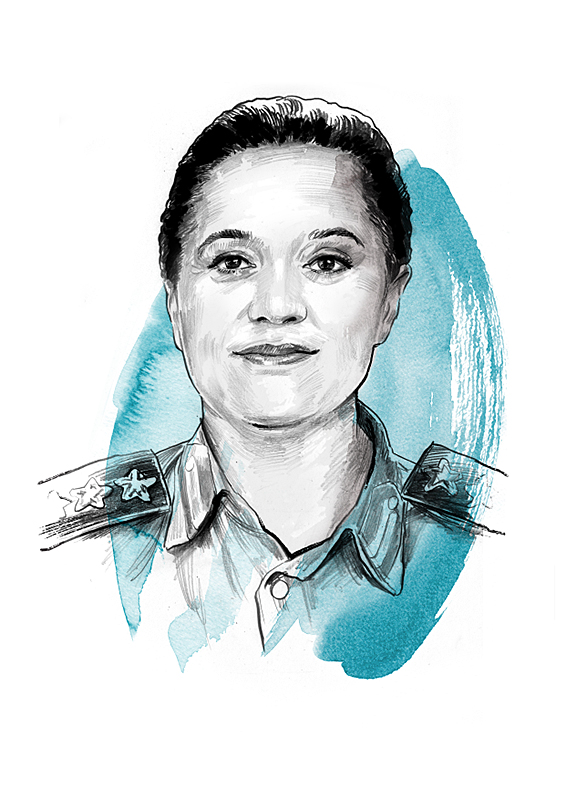On behalf of the German Federal Ministry for Economic Cooperation and Development (BMZ), GIZ is supporting Nepal in its efforts to improve the country’s health system. To do so, it is implementing a project to promote healthcare management and to support national authorities in implementing reforms and introducing a national health insurance scheme. The project also runs campaigns on women’s health and menstrual hygiene.
‘Waste management at our hospital is exemplary’
Three questions for the ophthalmologist Dr Meena Kunwar Joshi, Senior Superintendent of Police (SSP) and Deputy Director of the Nepal Armed Police Force (APF) Hospital, which also treats civilians. With the support of GIZ, Dr Kunwar Joshi expanded the hospital’s waste management system and developed it into a learning centre for environmentally friendly and safe waste management.

What was the catalyst behind the new waste management system at your hospital?
Before the COVID-19 pandemic, we sent all our waste to the municipal landfill. However, during the pandemic, landfills suddenly refused to accept hospital waste. People were very worried about infections. During this period, we began burning our waste in specially dug pits on the hospital grounds. Yet it soon became clear that this could not be a permanent solution. We needed a long-term, environmentally friendly solution to our waste management problem.
With the support of GIZ, which advises the Nepalese Government in the health sector, we became a model hospital for waste management, working to the World Health Organization (WHO) standards. Other partners include the Government of Nepal and the Health Environment and Climate Action Foundation (HECAF).
What steps did you take to reorganise waste management?
We began by analysing our waste and discovered that only 15 per cent of it is contaminated. More than 80 per cent of the waste was therefore unproblematic as long as it did not come into contact with these contaminated materials. This was our starting point. We introduced different-coloured waste containers to ensure that contaminated waste was separated from clean waste. The contaminated waste is now disinfected and sterilised, which means that at the end the entire waste is harmless.
How does the learning centre for waste management in the health sector work?
Many officials and representatives from hospitals, medical laboratories and medical companies come to the centre to look at our waste management system. We also train their staff. Environmentally friendly waste management does not stop at the hospital gate, however. Instead of sending our waste to landfill, we now sell reusable, valuable raw materials such as glass, plastic, metal and paper. By separating and selling them, we can help conserve resources – and at the same time we can even generate income too.